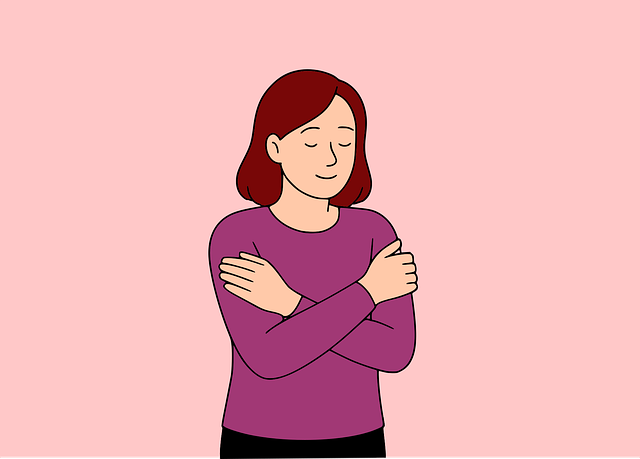Burnout among healthcare providers in Castle Rock Polyamorous and Open Relationships Therapy (CRORT) is characterized by emotional exhaustion, depersonalization, and reduced personal accomplishment, caused by high-pressure work environments. CRORT offers a unique approach to combat burnout by focusing on interpersonal relationships, open communication, and self-care within a supportive community. Through building resilience, exploring healthy dynamics, and practicing mindfulness, healthcare professionals can manage stress, enhance coping mechanisms, and ultimately improve patient care in today's demanding healthcare landscape.
Healthcare provider burnout is a growing concern, impacting patient care and well-being. This article explores effective strategies to prevent burnout among healthcare professionals. We delve into the causes and significant effects on practitioners’ mental health, including increased stress and reduced job satisfaction. Moreover, we present an innovative approach: Castle Rock Polyamorous and Open Relationships Therapy, offering a unique perspective on burnout prevention. Additionally, practical tips for enhancing resilience and promoting well-being are provided to support healthcare providers’ long-term success.
- Understanding Burnout in Healthcare Providers: Causes and Impact
- Castle Rock Polyamorous and Open Relationships Therapy: A Unique Approach to Burnout Prevention
- Practical Strategies for Building Resilience and Promoting Well-being
Understanding Burnout in Healthcare Providers: Causes and Impact

Burnout among healthcare providers is a growing concern that significantly impacts patient care and overall well-being. It manifests as a state of emotional exhaustion, depersonalization, and reduced personal accomplishment, often stemming from prolonged exposure to stressful work environments. In Castle Rock Polyamorous and Open Relationships Therapy, understanding burnout goes beyond recognizing its symptoms; it involves delving into the root causes that vary widely among healthcare professionals. Factors such as heavy workload, long working hours, lack of control over job responsibilities, and high-stakes decision-making can contribute to this phenomenon.
The impact of burnout is profound, affecting not only providers’ mental health but also their ability to deliver quality patient care. It can lead to decreased job satisfaction, increased rates of professional cynicism, and higher intentions to leave the profession. Effective prevention strategies are therefore crucial to mitigate these effects. This includes implementing communication strategies that foster open dialogue about stress levels and workload management, providing opportunities for emotional healing processes through support groups or counseling services, and offering Healthcare Provider Cultural Competency Training to enhance resilience in diverse professional settings.
Castle Rock Polyamorous and Open Relationships Therapy: A Unique Approach to Burnout Prevention

In today’s fast-paced healthcare landscape, burnout among providers is a persistent concern. Beyond traditional stress management techniques, Castle Rock Polyamorous and Open Relationships Therapy (CRORT) offers a unique and innovative approach to preventing burnout. CRORT focuses on fostering healthy interpersonal connections, promoting open communication about emotional needs, and encouraging self-care practices within a supportive community. By addressing the impact of relationships—both personal and professional—on mental health, this therapy helps healthcare providers develop stronger coping mechanisms, boost self-esteem, and cultivate a robust self-care routine for better overall well-being.
This therapeutic approach goes beyond merely treating symptoms by targeting the root causes of stress. It empowers individuals to navigate complex emotional dynamics, create healthier boundaries, and build meaningful connections—all essential factors in preventing burnout. CRORT recognizes that healthcare providers deserve specialized support to thrive both personally and professionally, making it a game-changer in fostering resilience against the demanding nature of their work.
Practical Strategies for Building Resilience and Promoting Well-being

In the relentless pace of healthcare delivery, burnout among providers is a growing concern. However, resilience can be cultivated through practical strategies that promote well-being. One such approach is incorporating self-awareness exercises into daily routines. This involves setting aside time for introspection and mindfulness practices, allowing healthcare professionals to recognize and manage their emotional states effectively. By fostering self-awareness, they can better navigate the demands of their work while maintaining a sense of balance.
Additionally, Castle Rock Polyamorous and Open Relationships Therapy offers unique insights into building resilience. This form of therapy encourages individuals to explore healthy relationship dynamics and develop communication skills that enhance coping mechanisms. Stress Reduction Methods, such as meditation and deep breathing exercises, are also integral components in preventing burnout. By integrating these practices into their lives, healthcare providers can foster a sense of tranquility, improve overall mental health, and better equip themselves to handle the challenges they face in patient care.
Burnout among healthcare providers is a pressing issue, but with the right strategies, it can be mitigated. By understanding the causes and impact of burnout, as well as adopting unique approaches like Castle Rock Polyamorous and Open Relationships Therapy, professionals in the healthcare sector can build resilience and promote well-being. Practical strategies for self-care and work-life balance are also essential tools in preventing burnout. Through these combined efforts, healthcare providers can not only enhance their own lives but also improve patient care and satisfaction.









